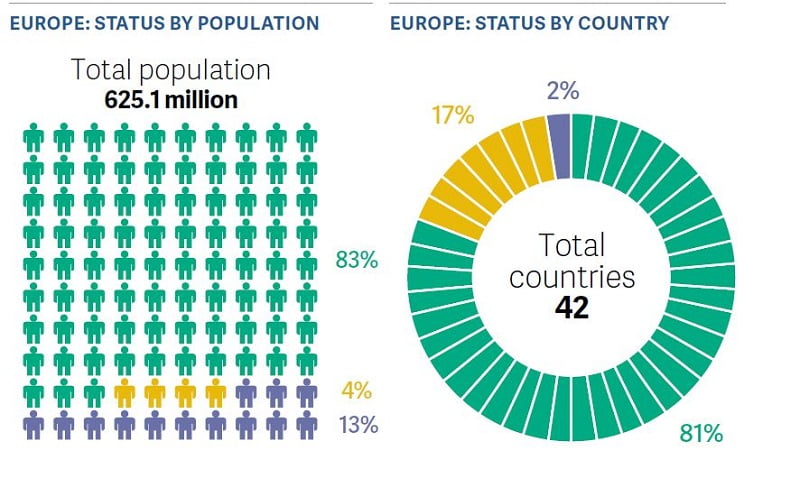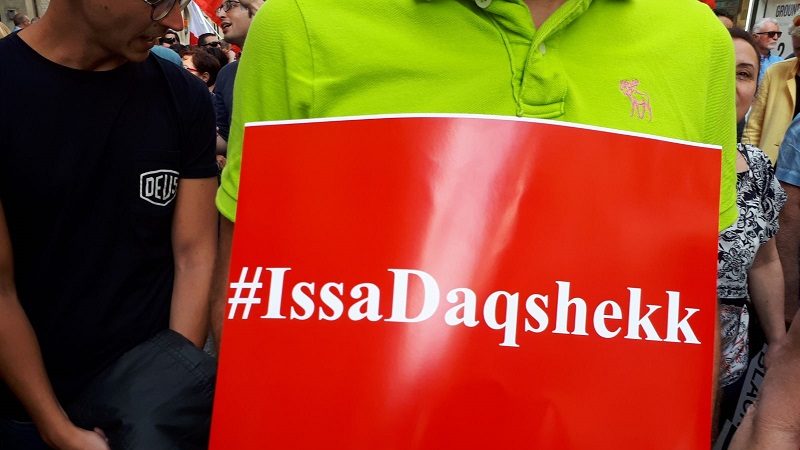Democracy is declining across the world in a pattern that is “consistent and ominous,” according to the latest report by independent watchdog Freedom House.
In its annual report ‘Freedom in the World’ published this week, findings indicate that for the 13thyear in a row democracy has continued to decline, echoing similar findings from the Global Corruption Perception Index released last week.
The report notes that States that were already authoritarian have become even more so, but that long standing democracies have suffered due to populist politicians, failings in the separation of powers, and discriminatory treatment of minorities.
With the trend of declining democracy spanning all continents, the report describes the pattern as “consistent and ominous” leading them to confirm that democracy is in retreat.
A total of 68 countries suffered a decline in political rights and civil liberties last year, with only 50 registering any improvement.
The number of ‘Not Free’ countries continued on its gradual incline and a significant crisis of confidence in traditionally democratic countries has increased. Normal democratic functions such as free elections and the freedom of expression are being systematically disregarded.
Now, only 39% of the 7.6 billion people on the planet and less than half of the world’s countries can be considered as truly free.
Prevalent issues highlighted by the report include verbal and physical attacks on journalists and a decline in press freedom as a result of anti liberal and authoritarian rulers.
In addition, rule of law declines were observed in a number of democracies and widespread discrimination against asylum seekers and refugees in spite of the laws designed to protect them.
In Europe, particular attention was drawn to Montenegro and its President Milo Dukanovic who was described as consolidating power around himself and subverting basic standards of good governance.

Turkey was criticised for its simultaneous parliamentary and presidential elections that took place under a state of emergency, as well as their purging of State institutions and arrest of journalists, members of civil society, and academics.
The report made a number of recommendations on how established democracies can protect their core values. These include the support of fact-based independent reporting, enforcing anti-corruption laws, and ensuring the legal and fair treatment of refugees, migrants, and asylum seekers.
Additionally, countries were warned of the need for greater transparency requirements for the personal finances of Politically Exposed Persons.
This report echoes what many already knew. In Malta, ranked 91, serving members of the Labour Party cabinet are still in their positions despite having Panama Papers allegations of kickbacks and evidence of offshore structures hanging over them.
Additionally, Malta-based Pilatus Bank was revealed to be involved in the Azerbaijani Laundromat money laundering scandal.
The country has also come under hash criticism regarding the decline of the rule of law, the capture of its institutions and judiciary, and the issues regarding freedom of speech and expression, particularly in terms of independent media portals.












